-
 Bitcoin
Bitcoin $117,576.6195
-0.21% -
 Ethereum
Ethereum $2,938.5668
-1.35% -
 XRP
XRP $2.7699
4.60% -
 Tether USDt
Tether USDt $1.0003
0.01% -
 BNB
BNB $688.1624
-0.01% -
 Solana
Solana $160.5113
-1.95% -
 USDC
USDC $0.9999
0.01% -
 Dogecoin
Dogecoin $0.1976
-0.70% -
 TRON
TRON $0.3008
1.54% -
 Cardano
Cardano $0.7159
-2.16% -
 Hyperliquid
Hyperliquid $46.2240
2.04% -
 Stellar
Stellar $0.3966
22.03% -
 Sui
Sui $3.3928
-3.11% -
 Chainlink
Chainlink $15.1204
-2.43% -
 Bitcoin Cash
Bitcoin Cash $515.1741
-1.19% -
 Avalanche
Avalanche $20.8130
-0.90% -
 Hedera
Hedera $0.2001
-2.12% -
 UNUS SED LEO
UNUS SED LEO $9.0522
0.72% -
 Shiba Inu
Shiba Inu $0.0...01316
-2.01% -
 Toncoin
Toncoin $2.9843
0.61% -
 Litecoin
Litecoin $92.6745
-2.71% -
 Polkadot
Polkadot $3.9483
-0.06% -
 Monero
Monero $328.5347
1.10% -
 Dai
Dai $0.9998
0.01% -
 Ethena USDe
Ethena USDe $1.0006
-0.01% -
 Uniswap
Uniswap $8.3739
-6.50% -
 Bitget Token
Bitget Token $4.4241
-1.99% -
 Pepe
Pepe $0.0...01222
-3.96% -
 Aave
Aave $300.5203
-3.61% -
 Bittensor
Bittensor $382.2607
-1.92%
What is an ICO (initial coin offering)?
ICOs raise capital for crypto projects by selling new tokens for established cryptocurrencies like Bitcoin. While offering early access and potential high returns, they're risky due to scams and regulatory uncertainty; thorough research is crucial before investing.
Mar 04, 2025 at 10:13 pm
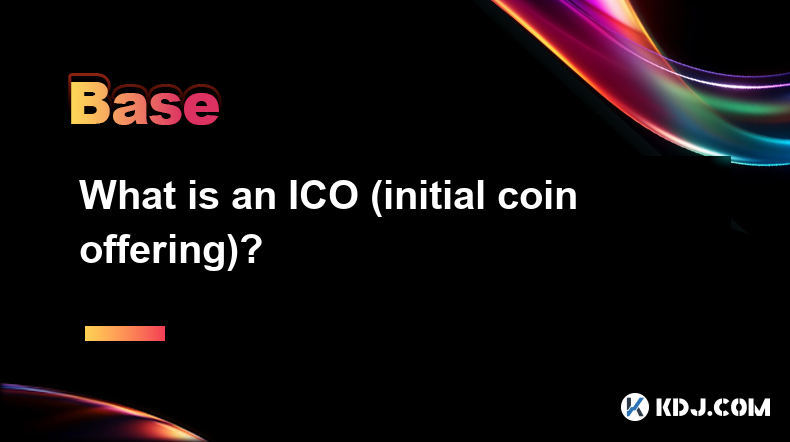
Key Points:
- ICOs are fundraising mechanisms used by cryptocurrency projects.
- They involve issuing and selling newly created crypto tokens in exchange for established cryptocurrencies like Bitcoin or Ethereum.
- ICOs offer early access to a project's token, often at a discounted price.
- Participation carries significant risk due to regulatory uncertainty and the potential for scams.
- Understanding the project's whitepaper and team is crucial before investing.
What is an ICO (Initial Coin Offering)?
An Initial Coin Offering (ICO) is a fundraising method employed by cryptocurrency startups to raise capital. Unlike traditional fundraising methods, ICOs bypass intermediaries like venture capitalists and banks. Instead, they directly sell their newly created cryptocurrency tokens to the public in exchange for established cryptocurrencies such as Bitcoin (BTC) or Ethereum (ETH). This allows projects to access funding quickly and directly from a potentially global investor base.
How do ICOs work?
The process typically begins with the creation of a detailed whitepaper. This document outlines the project's goals, technology, team, and tokenomics – the economic model governing the token's supply and distribution. After the whitepaper is released, the project announces the ICO, specifying details like the token price, the amount of tokens available, and the duration of the offering. Investors can then purchase tokens using their existing cryptocurrencies.
What are the benefits of ICOs for projects?
ICOs offer several advantages to startups. Firstly, they provide a relatively quick and efficient way to raise substantial funds. Secondly, they bypass the lengthy and often stringent processes associated with traditional venture capital funding. Thirdly, the decentralized nature of ICOs fosters a more direct relationship between the project and its investors. Finally, successful ICOs can create significant brand awareness and community engagement.
What are the risks of participating in an ICO?
Investing in ICOs involves significant risks. Many ICOs are scams or fail to deliver on their promises. Regulatory uncertainty is another major concern, as the legal landscape surrounding ICOs is still evolving. The value of the tokens received can fluctuate wildly, potentially resulting in substantial losses. Liquidity can also be a problem, as there may be limited opportunities to sell the tokens quickly after purchase.
What should I consider before investing in an ICO?
Thorough due diligence is paramount before investing in any ICO. This includes:
- Reviewing the whitepaper: Carefully examine the project's goals, technology, team, and tokenomics. Look for inconsistencies, unrealistic promises, or a lack of technical detail.
- Researching the team: Investigate the team's background, experience, and reputation. Are they credible individuals with a proven track record?
- Assessing the market: Evaluate the market demand for the project's token and its potential for future growth. Is there a real need for this project and its associated token?
- Understanding the risks: Acknowledge the inherent risks involved in ICO investments, including the possibility of losing your entire investment.
- Checking for regulatory compliance: Ensure the ICO complies with relevant securities laws and regulations in your jurisdiction.
What is the difference between an ICO and an STO (Security Token Offering)?
While both ICOs and Security Token Offerings (STOs) are methods of raising capital through token sales, they differ significantly in their regulatory status and the nature of the tokens offered. ICOs typically offer utility tokens, which grant access to a project's services or platform. STOs, on the other hand, offer security tokens, which represent ownership in a company or asset and are subject to stricter securities regulations. This difference often leads to greater regulatory scrutiny for STOs.
What are some examples of successful ICOs?
While many ICOs have failed, some have achieved remarkable success. It is important to note that past performance is not indicative of future results, and the success of these projects does not guarantee the success of future ICOs. Examples include Filecoin, which raised over $250 million in its ICO, and EOS, which raised over $4 billion. However, it's crucial to remember that even these projects have experienced volatility and price fluctuations since their ICOs.
What is the future of ICOs?
The future of ICOs remains uncertain. Increased regulatory scrutiny and a growing number of scams have led to a decline in ICO activity. However, the underlying technology and the potential for decentralized fundraising remain attractive to some projects. The evolution towards more regulated offerings, such as STOs, might represent a more sustainable path for future fundraising within the cryptocurrency space. It's likely that the landscape will continue to evolve, adapting to changing regulatory environments and investor sentiment.
What are some common scams related to ICOs?
Several common scams target ICO investors. These include:
- Fake teams and projects: Scammers often create fake teams and whitepapers to lure investors.
- Pump and dump schemes: Scammers artificially inflate the price of a token before selling it off, leaving investors with worthless assets.
- Rug pulls: Developers abruptly shut down a project and disappear with the investors' funds.
- Ponzi schemes: New investors' funds are used to pay off earlier investors, creating a false sense of profitability. These schemes inevitably collapse when new investment dries up.
Frequently Asked Questions:
Q: Are ICOs legal? A: The legality of ICOs varies widely depending on the jurisdiction. Some countries have embraced ICOs, while others have banned them or imposed strict regulations.
Q: How can I protect myself from ICO scams? A: Conduct thorough due diligence, only invest what you can afford to lose, and be wary of unrealistic promises or guarantees.
Q: What is the difference between an ICO and an Initial Public Offering (IPO)? A: ICOs involve the sale of crypto tokens, typically on a decentralized platform, while IPOs involve the sale of company shares on a regulated stock exchange.
Q: Are ICOs a good investment? A: ICOs are highly risky investments. While some have been successful, many have failed, resulting in significant losses for investors. The potential for high returns is often offset by the equally high potential for substantial losses. It's crucial to weigh the risks carefully before investing.
Disclaimer:info@kdj.com
The information provided is not trading advice. kdj.com does not assume any responsibility for any investments made based on the information provided in this article. Cryptocurrencies are highly volatile and it is highly recommended that you invest with caution after thorough research!
If you believe that the content used on this website infringes your copyright, please contact us immediately (info@kdj.com) and we will delete it promptly.
- Bitcoin Price's Golden Number: Analyst Predicts Massive Breakout!
- 2025-07-13 02:30:12
- XRP Price Breakout: Analysts Eyeing Explosive Moves
- 2025-07-13 02:50:12
- Grayscale, AI Crypto, and Top Assets: What's the Deal?
- 2025-07-13 02:55:11
- DOGE's $0.25 Ceiling: Will the Meme Coin Break Through?
- 2025-07-13 02:30:12
- Binance, Bloomberg, and a Lawsuit Threat: CZ's Fighting Back!
- 2025-07-13 01:30:12
- Litecoin, BONK, BlockDAG Presale: Navigating the Crypto Frenzy
- 2025-07-13 00:30:12
Related knowledge
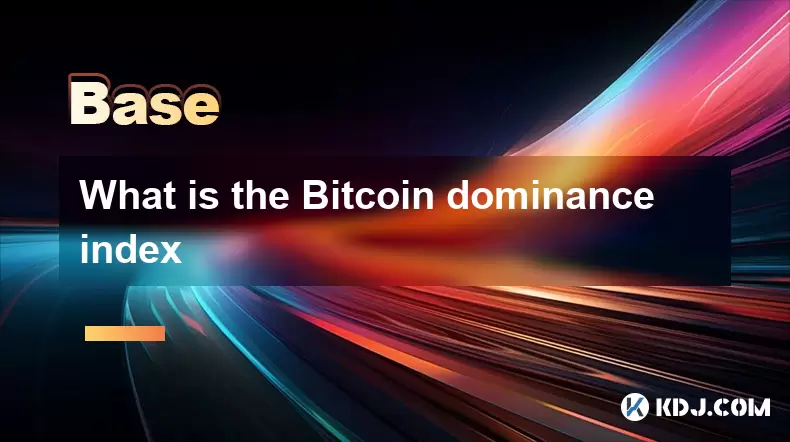
What is the Bitcoin dominance index
Jul 12,2025 at 10:35pm
Understanding the Bitcoin Dominance IndexThe Bitcoin Dominance Index, often abbreviated as BTC.D, is a metric used to measure Bitcoin's market capital...
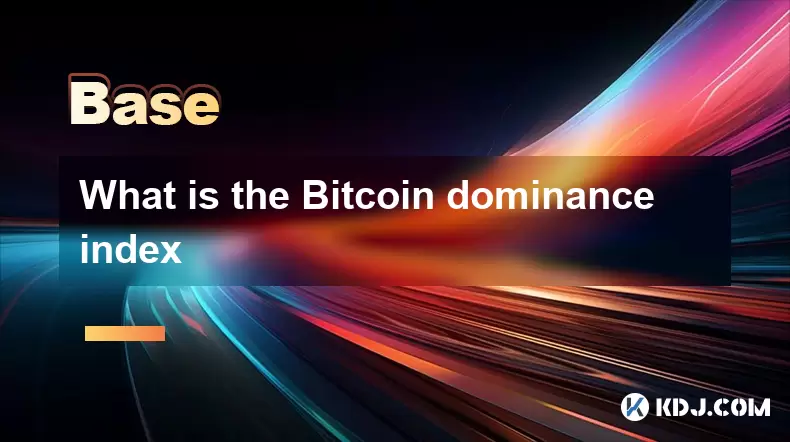
What is the Bitcoin dominance index
Jul 11,2025 at 04:29am
What is the Bitcoin Dominance Index?The Bitcoin Dominance Index is a metric used to gauge Bitcoin's market capitalization relative to the total market...
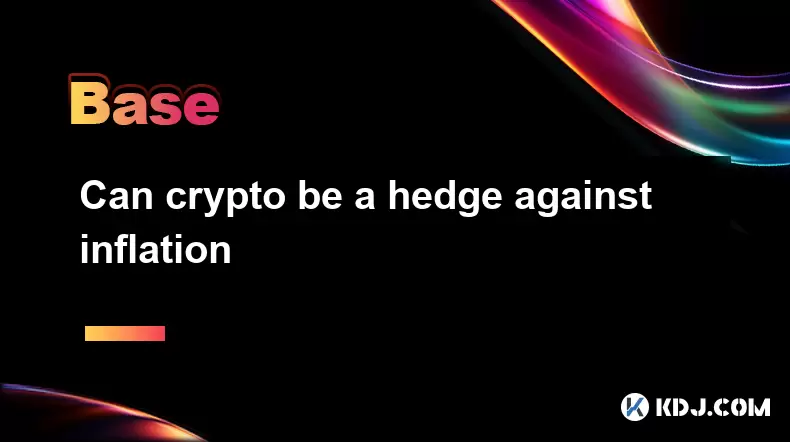
Can crypto be a hedge against inflation
Jul 12,2025 at 12:07pm
Understanding the Role of Blockchain in Decentralized Finance (DeFi)Blockchain technology serves as the backbone of decentralized finance, offering a ...
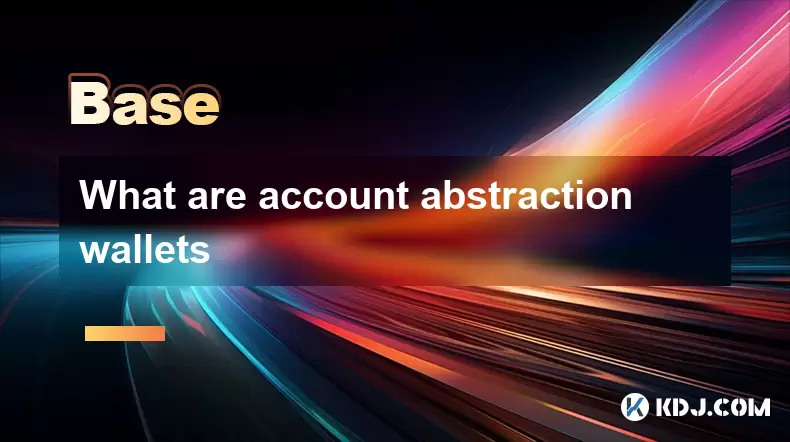
What are account abstraction wallets
Jul 13,2025 at 01:43am
Understanding the Concept of Account AbstractionAccount abstraction is a term frequently used in the Ethereum ecosystem, particularly within discussio...
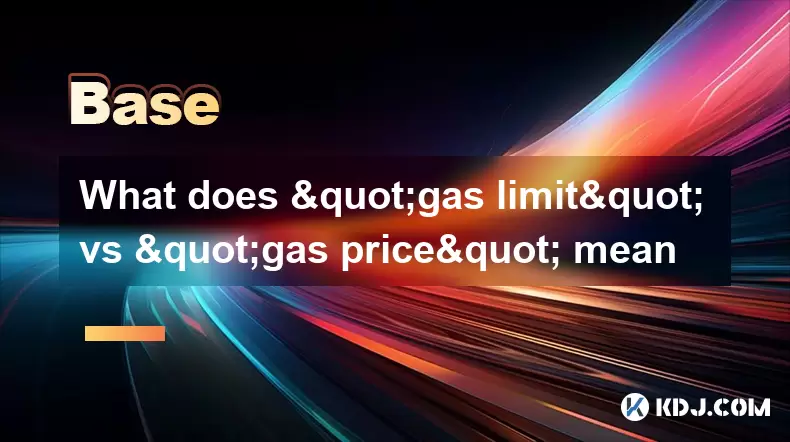
What does "gas limit" vs "gas price" mean
Jul 13,2025 at 04:00am
Understanding the Basics of Gas in Blockchain TransactionsIn the Ethereum and other EVM-compatible blockchains, every transaction requires computation...

What is Nansen ai
Jul 11,2025 at 03:42am
What is Nansen AI?Nansen AI refers to the integration of artificial intelligence technologies into the Nansen platform, which is primarily known for i...

What is the Bitcoin dominance index
Jul 12,2025 at 10:35pm
Understanding the Bitcoin Dominance IndexThe Bitcoin Dominance Index, often abbreviated as BTC.D, is a metric used to measure Bitcoin's market capital...

What is the Bitcoin dominance index
Jul 11,2025 at 04:29am
What is the Bitcoin Dominance Index?The Bitcoin Dominance Index is a metric used to gauge Bitcoin's market capitalization relative to the total market...

Can crypto be a hedge against inflation
Jul 12,2025 at 12:07pm
Understanding the Role of Blockchain in Decentralized Finance (DeFi)Blockchain technology serves as the backbone of decentralized finance, offering a ...

What are account abstraction wallets
Jul 13,2025 at 01:43am
Understanding the Concept of Account AbstractionAccount abstraction is a term frequently used in the Ethereum ecosystem, particularly within discussio...

What does "gas limit" vs "gas price" mean
Jul 13,2025 at 04:00am
Understanding the Basics of Gas in Blockchain TransactionsIn the Ethereum and other EVM-compatible blockchains, every transaction requires computation...

What is Nansen ai
Jul 11,2025 at 03:42am
What is Nansen AI?Nansen AI refers to the integration of artificial intelligence technologies into the Nansen platform, which is primarily known for i...
See all articles

























































































